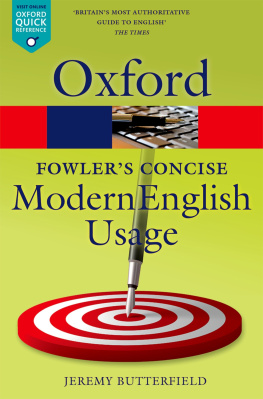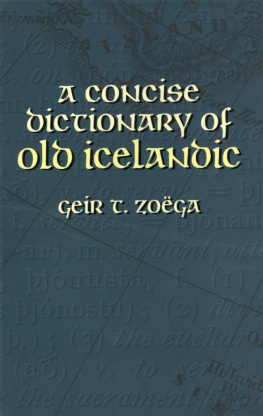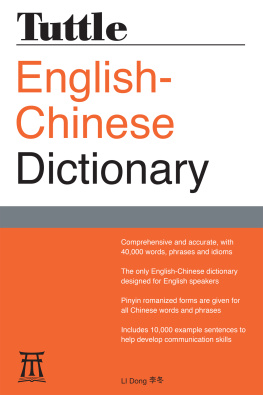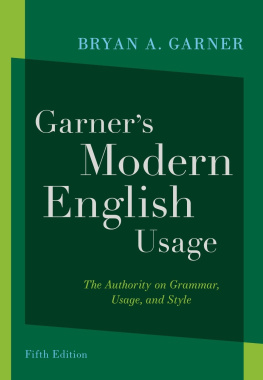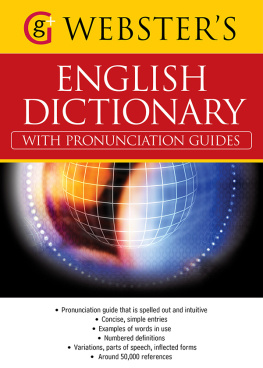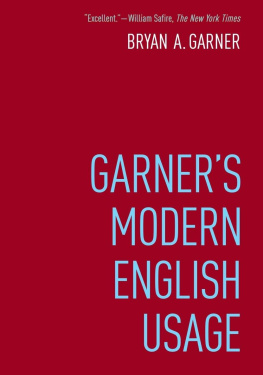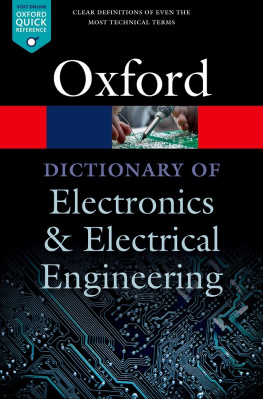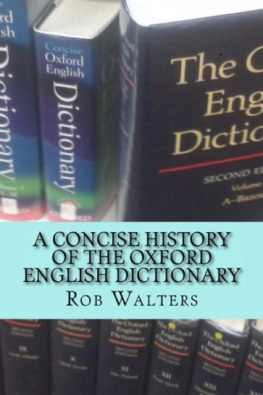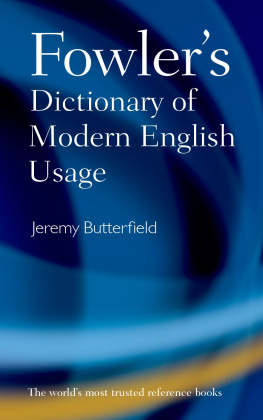Butterfield - Fowlers Concise Dictionary of Modern English Usage
Here you can read online Butterfield - Fowlers Concise Dictionary of Modern English Usage full text of the book (entire story) in english for free. Download pdf and epub, get meaning, cover and reviews about this ebook. City: Oxford, year: 2016;2015, publisher: Oxford University Press, Incorporated, genre: Children. Description of the work, (preface) as well as reviews are available. Best literature library LitArk.com created for fans of good reading and offers a wide selection of genres:
Romance novel
Science fiction
Adventure
Detective
Science
History
Home and family
Prose
Art
Politics
Computer
Non-fiction
Religion
Business
Children
Humor
Choose a favorite category and find really read worthwhile books. Enjoy immersion in the world of imagination, feel the emotions of the characters or learn something new for yourself, make an fascinating discovery.
- Book:Fowlers Concise Dictionary of Modern English Usage
- Author:
- Publisher:Oxford University Press, Incorporated
- Genre:
- Year:2016;2015
- City:Oxford
- Rating:4 / 5
- Favourites:Add to favourites
- Your mark:
- 80
- 1
- 2
- 3
- 4
- 5
Fowlers Concise Dictionary of Modern English Usage: summary, description and annotation
We offer to read an annotation, description, summary or preface (depends on what the author of the book "Fowlers Concise Dictionary of Modern English Usage" wrote himself). If you haven't found the necessary information about the book — write in the comments, we will try to find it.
Butterfield: author's other books
Who wrote Fowlers Concise Dictionary of Modern English Usage? Find out the surname, the name of the author of the book and a list of all author's works by series.
Fowlers Concise Dictionary of Modern English Usage — read online for free the complete book (whole text) full work
Below is the text of the book, divided by pages. System saving the place of the last page read, allows you to conveniently read the book "Fowlers Concise Dictionary of Modern English Usage" online for free, without having to search again every time where you left off. Put a bookmark, and you can go to the page where you finished reading at any time.
Font size:
Interval:
Bookmark:

How to search for terms in
Fowlers Concise Dictionary of Modern English Usage
To find an entry in this e-book you can:
A note on special characters
While most e-readers can display special characters (such as and ), many cannot search for words containing them, unless the special characters themselves are typed into the search box. If you are unable to type these characters, please browse for your term using the .
Alphabetical List of Entries
THIRD EDITION
Jeremy Butterfield is a freelance lexicographer, language expert and writer, and an OUP author. For many years he worked in senior editorial positions in Collins English and Bilingual Dictionaries. He is also the author of the popular book on the English language, Damp Squid: The English Language Laid Bare ( 2009 ), as well as the Oxford AZ of English Usage ( 2013 ). Jeremy is the editor of the fourth edition of the renowned Fowlers Concise Dictionary of Modern English Usage ( 2015 ).
Many entries in this dictionary have recommended web links. In addition to their listing at relevant entries, a complete list of links for this title can be found at www.oxfordreference.com

Great Clarendon Street, Oxford, OX2 6DP, United Kingdom
Oxford University Press is a department of the University of Oxford. It furthers the University's objective of excellence in research, scholarship, and education by publishing worldwide. Oxford is a registered trade mark of Oxford University Press in the UK and in certain other countries
Oxford University Press 1999, 2008, 2015
The moral rights of the author have been asserted
First published 1999
First published as an Oxford University Press paperback 2002
Second edition published 2008
Third edition published 2015
Impression: 3
All rights reserved. No part of this publication may be reproduced, stored in a retrieval system, or transmitted, in any form or by any means, without the prior permission in writing of Oxford University Press, or as expressly permitted by law, by licence or under terms agreed with the appropriate reprographics rights organization. Enquiries concerning reproduction outside the scope of the above should be sent to the Rights Department, Oxford University Press, at the address above
You must not circulate this work in any other form and you must impose this same condition on any acquirer
Published in the United States of America by Oxford University Press
198 Madison Avenue, New York, NY 10016, United States of America
British Library Cataloguing in Publication Data Data available
Library of Congress Control Number: 2014945276
ISBN 9780199666317
ebook ISBN 9780191062308
Printed in Great Britain by
Clays Ltd, Elcograf S. p. A
Fowlers Concise Dictionary of Modern English Usage gives readers accessible guidance on the best use of todays English. It offers over 4,500 succinct, reasoned entries with detailed explanations and clear recommendations that help you to express yourself in a way that is both up to date and correct. An abridged version of the most celebrated book ever published on English usage, Fowlers Modern English Usage, it condenses the wealth of information in that work for the benefit of readers who need speedy access to authoritative guidance.
Fowlers Concise Dictionary answers the whole range of queries posed by people striving to write correct, current English. It includes guidance on tricky points of grammar (whether to use which or that, everyone followed by plural pronouns), spelling (co-, fulfil, idiosyncrasy), punctuation (semicolon, comma), syntax (bored with or by, data, singular or plural), style (clichs, iconic), and appropriate word choice (classic / classical, confusable words).
Hundreds of authentic examples drawn from the unique resources available to Oxford University Press illustrate the points under discussion. Chief among those resources is the Oxford English Corpus (abbreviated in the text to OEC), a database of written and spoken twenty-first century English from all over the world. It contains two and a half billion words of texts, and covers the whole gamut of English writing styles from literary novels and specialist journals to everyday newspapers and magazines, blogs, emails, and social media. Downloaded largely from Internet websites, these texts provide comprehensive evidence about how English is used (and misused) at all levels of formality throughout the English-speaking world.
When crucial information can be presented most clearly in table form, entries are given a special layout. These entries are of several kinds. Some provide information on interesting aspects of English, such as American English, dialect, misquotations ; some summarize and list points that recur throughout the dictionary, such as gender-neutrality or Latin plurals; others, such as mute e and -able, -ible, provide general rules to help unravel the complexities of English spelling.
This dictionary is an updated version of Robert Allens 2008 Pocket Fowlers Modern English Usage, which was a cut-down of Fowlers Modern English Usage. The present text adds around 200 new entries to the Pocket. All existing entries were reviewed, and those that required bringing up to date or further clarification were edited accordingly. A few entries seemed no longer relevant and have been dropped. In their place are the new entries, among which the reader will find words reflecting changes in communication since 2008 , such as hashtag, phablet, selfie, tweet, unfriend, unfollow, viral, and wilfing.
Several new entries discuss mistakes which, though themselves not new, have become more widespread: obtuse used to mean abstruse, alot spelt as one word, baited breath for bated breath, eminent danger for imminent danger. (The symbol throughout the dictionary indicates an incorrect or unacceptable use.) Other new entries discuss the clichs and euphemisms that continue to thrive in certain kinds of discourse, e.g. address (verb), best practice, challenging, collateral damage, community, defining moment, steep learning curve.
Vogue words come and go, and those added to this volume include achingly, angsty, best practice, closure, reference (verb), and passionate. Retained from the earlier text is iconic, which Robert Allen described as a word that appears to have become all of a sudden as indispensable as it is meaningless in practically every paragraph of popular journalism.
Apart from checking in the
Font size:
Interval:
Bookmark:
Similar books «Fowlers Concise Dictionary of Modern English Usage»
Look at similar books to Fowlers Concise Dictionary of Modern English Usage. We have selected literature similar in name and meaning in the hope of providing readers with more options to find new, interesting, not yet read works.
Discussion, reviews of the book Fowlers Concise Dictionary of Modern English Usage and just readers' own opinions. Leave your comments, write what you think about the work, its meaning or the main characters. Specify what exactly you liked and what you didn't like, and why you think so.

